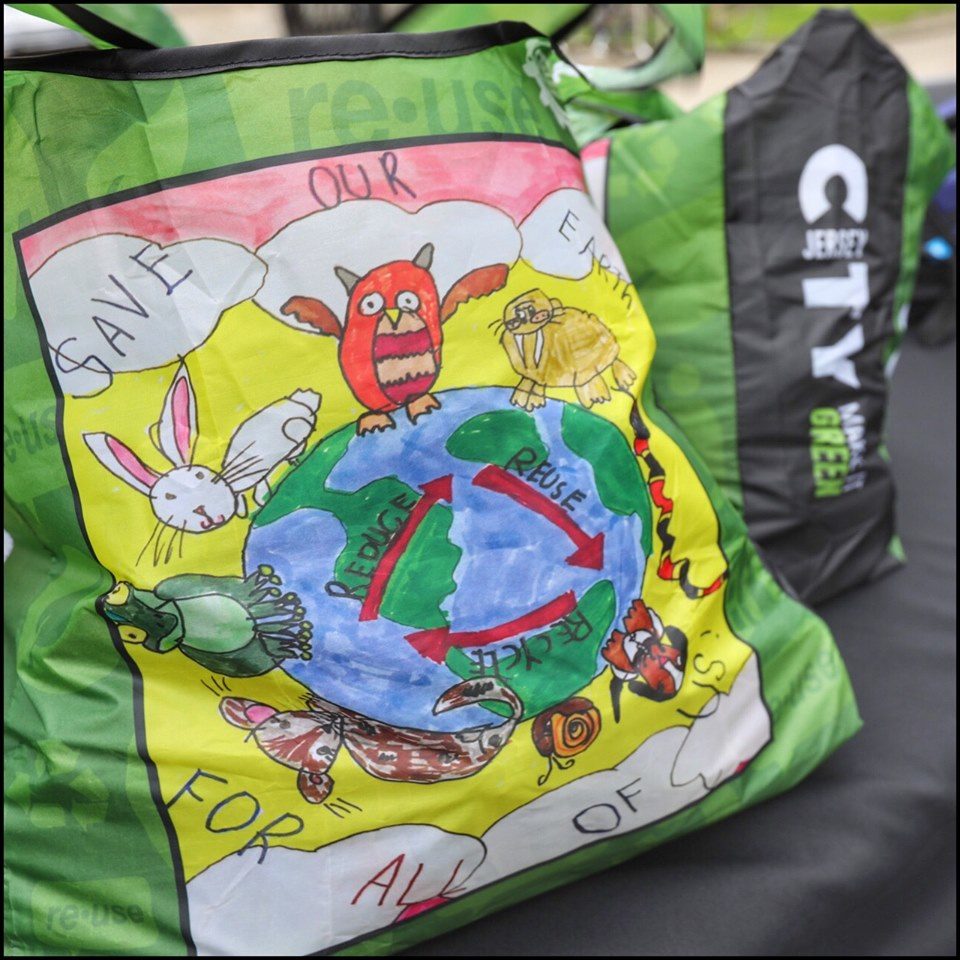Mayor Fulop is distributing reusable bags at several local supermarkets this morning to officially kickoff a city-wide ban on commercial/retail use of disposable plastic bags as part of the city’s effort to decrease litter contamination. At 10:30 a.m., it’s kicking off at the ShopRite located at 400 Marin Boulevard.
Starting today, June 28, it is a violation of the Municipal Code in Jersey City to use single-use or disposable plastic bags in both commercial and retail businesses, an effort targeting the main source of plastic refuse polluting waterways, streets and parks.
“The goal is not to punish retailers but to create a behavior change where residents start bringing their own reusable bags,” Mayor Fulop said. “It’s not uncommon to be anywhere in the state and see plastic bags blowing around, polluting our parks and clogging sewage drains. This ordinance looks to make it a habit for shoppers to bring their reusable bags when shopping, and steer them away from the single-use plastic bags.”
To offset the spread of plastic bags in the streets and waterways, the Ordinance 18-065 mandates businesses use re-useable and durable carryout bags with handles that customers can continue to deploy at merchant locations for up to 125 or more occasions. Some retailers may choose to continue to provide reusable plastic bags that meet the requirements of the ordinance.
Since the Ordinance passed the City Council in 2018, a yearlong effort was launched to educate and increase awareness on the bag ban. The City worked with the community to host events and programming designed to increase awareness, which included partnerships with the Board of Education and Goldman Sachs hosting two recent events, the sustainability STEAM bag challenge and Bagapalooza.

This initiative is part of a larger effort to make Jersey City more environmentally sustainable. The City has been a certified Sustainable Jersey community since 2011. In recent years, Jersey City has led the state on many environmental issues, including electrifying the City fleet, installing solar panels on municipal buildings, utilizing green infrastructure to mitigate storm water runoff, and committing to tackle climate change.
In 2018, Jersey City created an Office of Sustainability to oversee the City’s sustainability efforts.
“For this year’s theme of sustainable neighborhoods we we’ve been focusing on ways to involve residents in making positive environmental changes within their own neighborhoods,” said Katherine Lawrence, Director of Jersey City’s Office of Sustainability. “One such way residents can make an impact is through reducing their use of single-use items such as plastic bags.”
The impact of disposable plastic bags polluting the environment is no longer in question on a global scale. A month ago, during the world record setting manned dive of 36,000 feet in the southern end of the Pacific Ocean’s Mariana Trench, divers recovered plastic bags and other trash amongst the rarely seen wildlife at the sea floor.
“This measure, this small step we are taking, can be a huge step with everyone’s combined efforts across communities. We all have to do our part,” said Mayor Fulop. “I’m proud to serve as a model for other large cities across the nation, and I hope to provide motivation to them.”
The single-use bag ban applies to any bag provided by retail establishments at point of sale. Bags provided to customers must either be reusable or 100% recyclable paper bags that are made from at least 40% post-consumer recycled content. Violations of this new ordinance can lead to a minimum fine of $100 per infraction. The ordinance was passed unanimously 9-0 by the City Council on June 27, 2018.
Facts about plastic bags
- Plastic bags (both the banned and the legal variety) accounted for 3.1% of the litter collected from the state’s beaches during the 2017 Coastal Cleanup Day, down from to 7.4% in 2010.
- California retailers went from distributing more than 19 billion single-use plastic bags every year to zero when the state law banning plastic bags went into effect in 2017.
- Shoppers in the United States use almost one [plastic bag] per resident per day. Shoppers in Denmark use an average of four plastic bags a year.
- If current production and waste management trends continue, roughly 12,000 Mt of plastic waste will be in landfills or in the natural environment by 2050.
- According to a litter survey conducted for New Jersey Clean Communities Council, Inc., Hudson County showed a 61% increase in litter at the sites surveyed from 2004 to 2017.
- The average American family takes home an average of 1,500 plastic bags annually.
You must be logged in to post a comment.